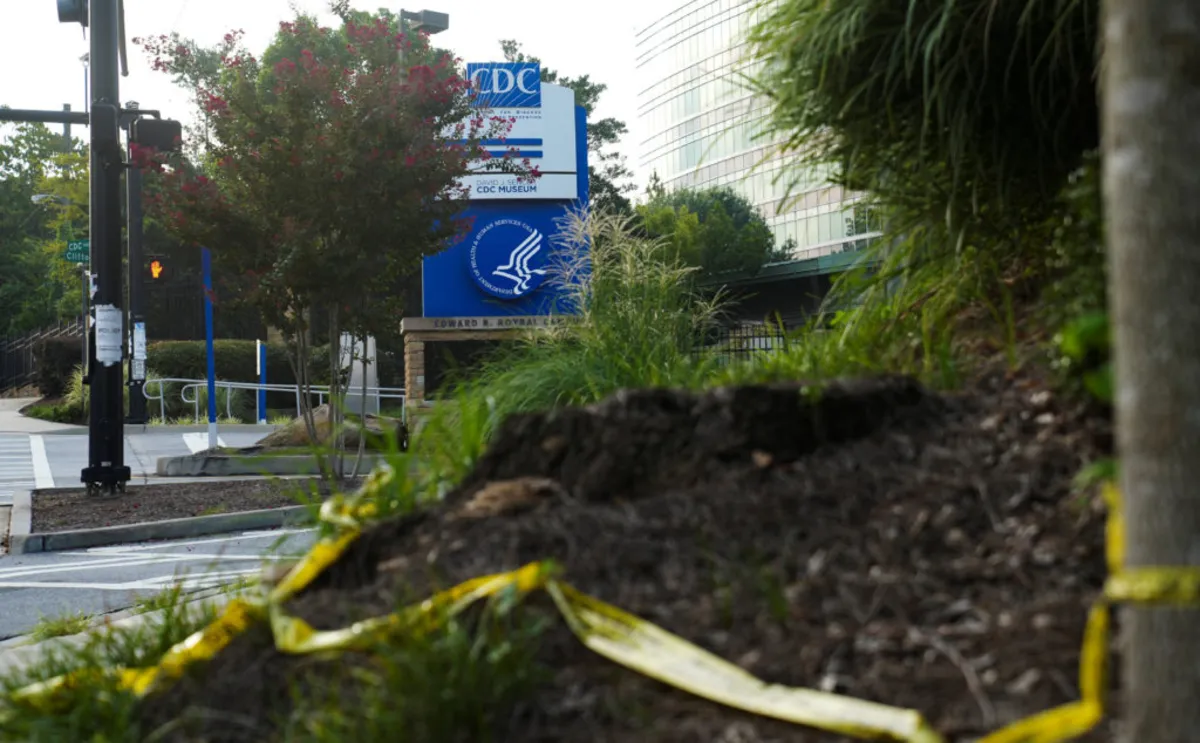
A shocking incident unfolded late Friday when a Georgia man, who had attributed his depression and suicidal thoughts to the COVID-19 vaccine, was identified as the shooter at the U.S. Centers for Disease Control and Prevention (CDC) headquarters. The suspect, 30-year-old Patrick Joseph White, opened fire, resulting in the tragic death of a police officer and ultimately his own demise during the confrontation.
According to law enforcement officials, White attempted to breach the CDC’s Atlanta headquarters but was thwarted by security guards. Following this, he drove to a nearby pharmacy where he opened fire, armed with five firearms, including at least one long gun. The incident left a significant mark on the CDC campus, with bullet holes reported on windows across at least four buildings. DeKalb County Police Officer David Rose, who responded to the scene, was tragically killed. Rose, a 33-year-old former Marine, graduated from the police academy just months prior, in March.
White was later discovered on the second floor of a building across from the CDC campus, where he was pronounced dead. Atlanta Police Chief Darin Schierbaum indicated that the cause of death is still under investigation, with authorities unsure if it was due to police action or self-inflicted.
The Georgia Bureau of Investigations described the crime scene as “complex,” indicating that the investigation would require substantial time to conclude. The American Federation of Government Employees, representing CDC workers, has voiced concerns that the shooting is not an isolated incident but rather the culmination of months of “mistreatment, neglect, and vilification” that CDC staff have faced, particularly regarding vaccine misinformation.
The union has called for federal officials to publicly condemn vaccine misinformation, asserting that such disinformation poses a direct risk to scientists and public health workers. In a recent statement, the union emphasized the necessity for leaders to reinforce public trust and ensure that accurate, science-based information prevails.
In the aftermath of the shooting, many CDC employees were left in a state of shock. The union reported that some staff members, including over 90 young children locked down inside the CDC’s Clifton School, remained huddled in various buildings until late at night. The union has advocated for a thorough security review and repairs to ensure that staff do not have to return to work in an environment still bearing the scars of the shooting.
“Staff should not be required to work next to bullet holes,” the union stated, stressing that a return to work under such conditions could exacerbate trauma for the employees.
In the wake of the tragedy, White's father reached out to authorities to identify his son as the shooter. Reports indicate that White had been struggling with personal issues, including the recent death of his dog, which contributed to his mental health decline. Neighbors reported that White had expressed deep distrust of COVID-19 vaccines, frequently discussing his belief that vaccines were harmful to both him and others. While he seemed amiable in demeanor, his neighbor, Nancy Hoalst, noted that she never anticipated he would resort to violence. “I had no idea he thought he would take it out on the CDC,” she remarked.
The shooting at the CDC underscores the serious implications of vaccine misinformation and its potential to incite violence against public health institutions. As investigations continue, the importance of fostering a safe environment for healthcare workers and combating disinformation remains a critical focus for federal officials and the community alike.